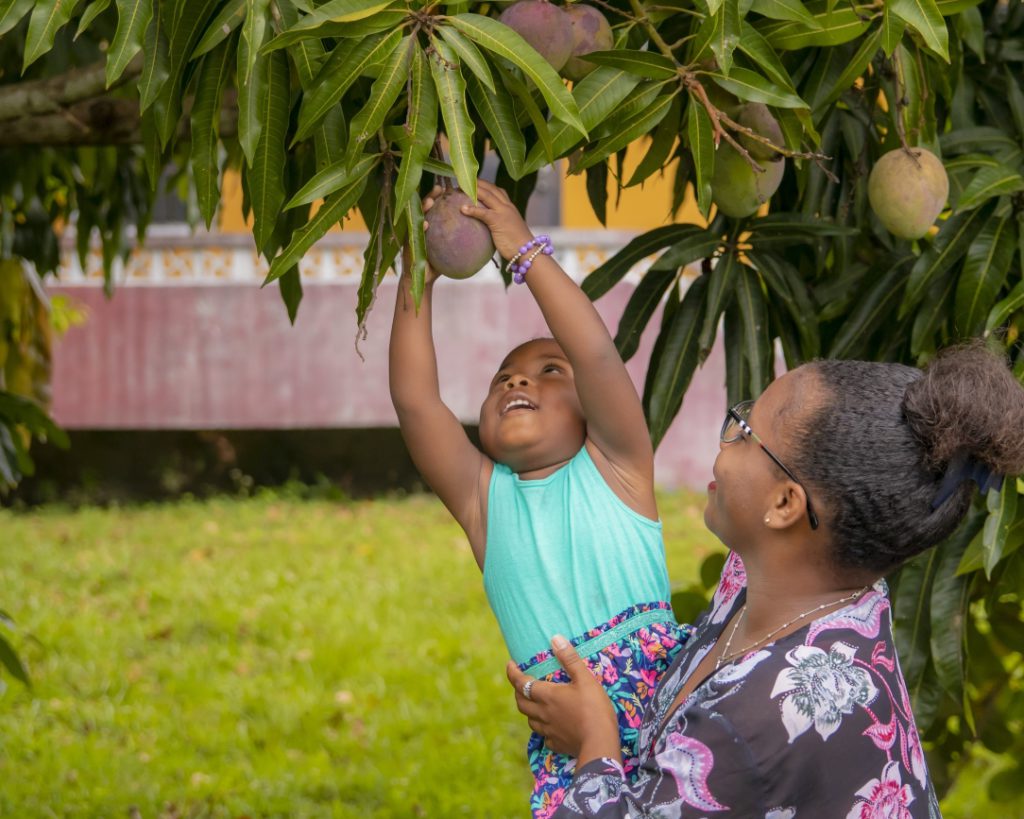On an ordinary day, you get in, start your vehicle, turn on your favourite radio station, and drive
to work. While bopping your head and humming to a catchy tune, you hear “We interrupt this
segment for an important broadcast…” As you try to settle in at your desk, the notifications on
your phone are going off from the calls and messages coming in. You open your social app, and
the newsfeed is plastered with posts about the same thing – A tropical storm or hurricane or
flood warning has been issued and is in effect. An ordinary day just accelerated into preparation
for a weather event. Of course, this is not unlikely but expected to happen any day because
climate change contributes to changing weather patterns with more intense and frequent weather
events.
On November 2, 2022, Hurricane Lisa made landfall in Belize and affected the lives of many.
“My first priorities were food, water, documentation, and shelter. When I calculated the
estimated cost to prepare, especially with the current price increases on goods and services, I was
worried for my kids,” says a single mother of two young children as she anxiously recounts her
feelings. “Even though I got paid just a few days ago, it was not in my budget, and I could not
prepare the way I wanted.”
Yes, the issues of food and water security are among the most critical in disaster preparedness
and management. Additionally, the connections between climate change, food security, water,
and health come to the fore when examining the threat of any extreme weather event. And as
people living in the Caribbean, especially in low-lying coastal communities, we are all too
familiar with their impacts.
Last year, Suriname experienced persistent heavy rainfall causing an overflow of rivers and
severe flooding. His Excellency Chandrikapersad Santokhi, President of Suriname made an
appeal for international support after he declared seven of ten districts as disaster areas. In his
address to the United Nations 77 th Session, President Santokhi shared that “fertile agricultural
lands were adversely affected causing economic loss and impacting food security and rural
livelihoods.” The floods affected several businesses, schools, healthcare facilities and more than
3000 households, causing many farmers to lose their crops and families to be cut off without any
source of income.
The direct and indirect impacts of the devastation were felt across the country. “Companies in
the coastal areas that were receiving agricultural products from those communities had shortages
of produce and juices in the store because they couldn’t provide the fruits to make the juices,”
says Ms. Stephanie Cheuk-Alam, Suriname’s Head of the Environmental Inspectorate at the
Bureau of Public Health and first cohort graduate of the University of the West Indies, Climate
Change and Health Leaders Fellowship Training programme.
The Caribbean’s food security is severely vulnerable to the impacts of disaster-related events
exacerbated by climate change which can lead to humanitarian crises and national security
concerns. The Caribbean Public Health Agency (CARPHA)’s Executive Director, Dr. Joy St.
John emphasizes that food insecurity is of major concern to the region. “The climate crisis causes
disruptions or damage to food value chains which in turn negatively impacts all four (4) pillars of
food security: availability; accessibility; utilization; and stability.”
A disaster event can lead to sudden power outages, a cut-off from water supplies, and perishable
goods can quickly become contaminated. Damage to crops impacts access to nutritious food and
increases dependence on canned and non-perishable foods with high sodium and sugar content.
Disaster-related events can also influence the drivers of food-, water-, and vector-borne illnesses
such as dengue, cholera, and malaria.
Climate change is a risk multiplier; it worsens existing vulnerabilities and disproportionately
affects the most vulnerable, including women, children, the elderly and the differently abled.
“The region must ensure that it builds resilience to these threats to safeguard food security as
well as strengthen supply chains within the Region to allow rapid recovery and availability of
food after a disaster,” expressed Dr. Colin Young, Executive Director of the Caribbean
Community Climate Change Centre (CCCCC). Even with concerted efforts among Caribbean
countries, we are still constrained. “Ultimately, it is necessary for large emitters to cut their
emissions to prevent an overshoot of 1.5°C;” says Dr. Young, “otherwise, there is a limit to our
preparedness over which the losses and damages will invariably occur leading to a food security
crisis in the region.”
The State of Food Security and Nutrition in the World 2022 reports that “the triple crises of
climate, conflict and the COVID-19 pandemic continue to challenge efforts to improve food
security, nutrition, health and livelihoods which affected the affordability of a healthy diet for 3.1
billion people including those in many low-income countries such as found in Latin America and
the Caribbean.”
Like the communities in Suriname, there are still communities across the Caribbean who live off
the land and depend on agriculture to feed their families and the river for their livelihood, even to
shower and wash their dishes and their clothes. They build their houses as close as possible to the
river, so they don’t have to walk too far to get water. And reflecting on the challenges imposed
by climate change and the resulting health implications to those communities, Ms. Cheuk-Alam
empathetically acknowledges, “it may be easy for people in some areas to say just move, but if
the area where you’re living has cultural and historical value to you and your family, it’s not as
easy to just pack up and leave and just build somewhere else.”
Over the last few years, the region has made significant efforts to strengthen the adaptive
capacity of climate and health systems. Under the European Union-funded ‘Strengthening
Climate Resilient Health Systems in the Caribbean’ project, CARPHA, the Pan American Health
Organization (PAHO) and the Caribbean Institute for Meteorology and Hydrology (CIMH) are
working to increase regional collaboration between the climate and health sectors and to develop
tools that will support science-based planning for public health climate adaptation and
mitigation. “We need an integrated approach to adaptation comprising the implementation of
early warning systems and strengthening surveillance systems for climate-sensitive diseases and
conditions as well as developing climate resilient food and water/sanitation safety plans for
CARIFORUM countries,” says Dr. St. John. “We are also supporting the implementation of
policies to promote healthier food environments and food security along with improving the
local availability and acceptability of healthy foods in emergency and non-emergency settings.”
While we do our best to ‘soften the blows’ of these extreme weather and disaster-related events
on the Caribbean’s food, water and health systems, the demand for transformative climate action
from major polluters and contributors to climate change has been echoed across the globe. Most
people see the Caribbean as destinations with inviting beaches, and breath-taking getaways. But
for the Caribbean people, climate change poses the biggest threat to our food and water security,
health and even our right to live. And on an ‘ordinary day,’ we are fighting to survive.



